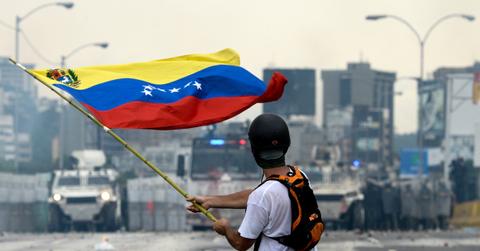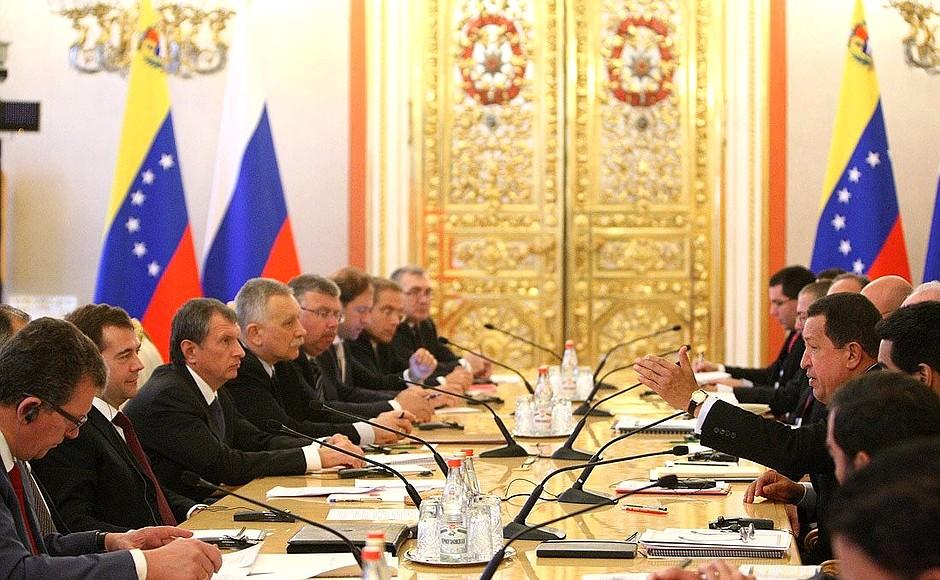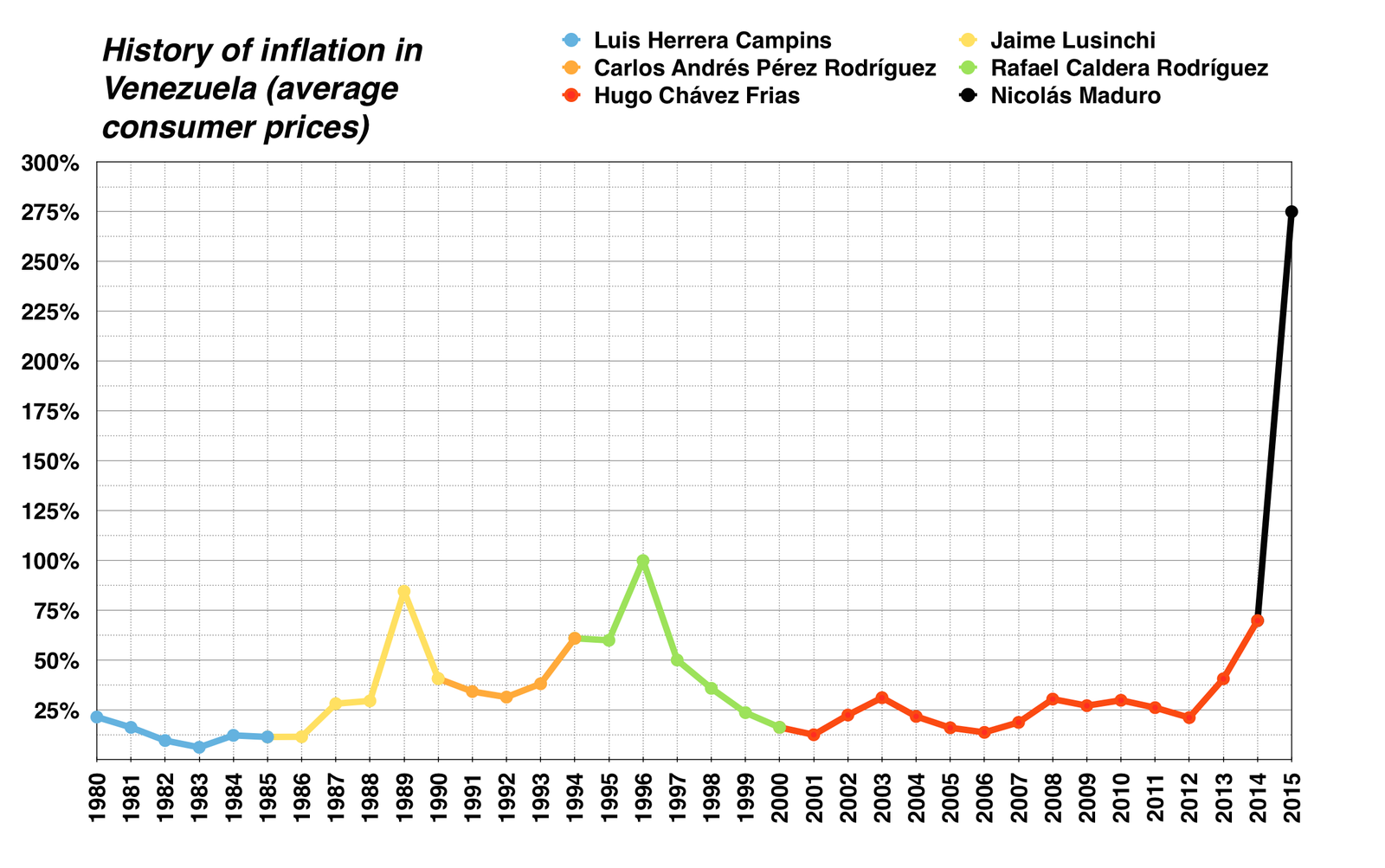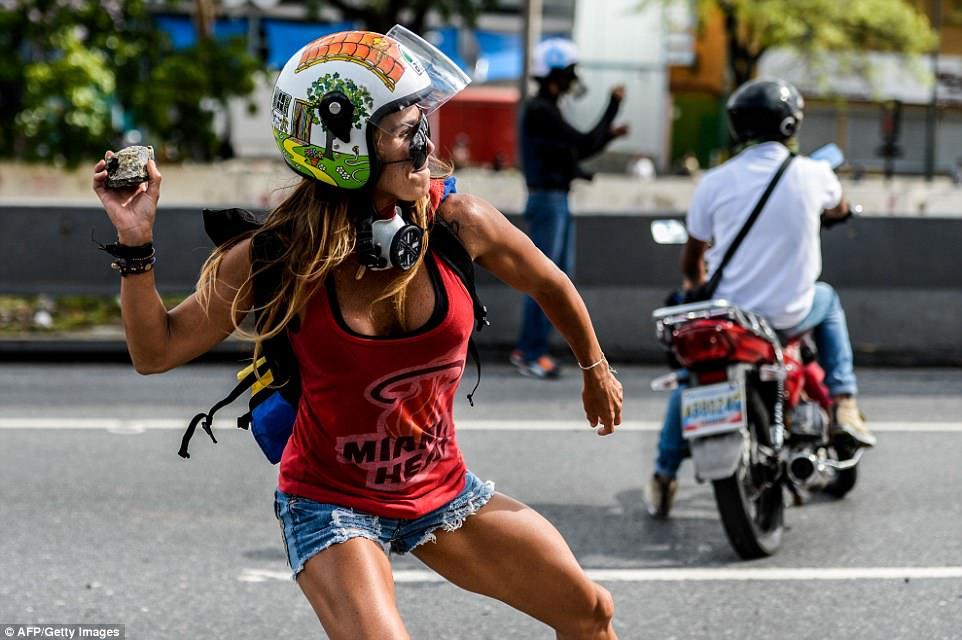5 Things To Know About The Venezuelan Crisis

Once one of Latin America’s wealthiest countries due to its oil riches, Venezuela is now facing severe economic hardship. Inflation is rapidly increasing towards crisis levels, and the nation’s GDP is rapidly decreasing each year. International Monetary Funds (IMF) has indicated that inflation in Venezuela has jumped from 2,400% in 2017 to 27,364% in 2018. Meanwhile, the regime’s economic output has dropped by 15% in 2018, 14% in 2017, and 16% in 2016.
The formerly prosperous nation was ruined by the oil culture: big governments, crude oil wealth, and political corruption. Vastly impacted both national and global community. Here are five things you should about the current Venezuela Crisis.
Venezuela’s Current Political Leadership Is Unclear
Venezuela’s issues surpass finances, as the country lacks a nationally recognized head of state. Controversy on the current political leadership started with the re-election of President Nicolas Maduro second-term in May 2018. Many Venezuelans described the election as dishonorable — opposition candidates claimed they were barred from running while others faced jail time. Maduro initially took over presidential power after the death of former president Hugo Chavez in 2013. However, numerous are now advocating for his impeachment, do it his dictator-like politics and corruption — supporting the opposition leader Juan Guaido as the interim president. In January 2019, Guaido declared himself as acting president, polarizing the country even further.
Moreover, Venezuela’s international isolation has deepened evidently over the past year. The crisis is met with mixed perspectives from the international community. Many states, including the U.S. UK, and in the EU and Latin America recognize Juan Guaido has Venezuela’s interim president. China, Russia, Turkey, Iran, and Cuba are in support of Maduro and deem him as the nation’s leader.
The Country’s High Dependence On Oil Is Proving To Be Bad Investment
Venezuela is home to the world’s most abundant oil supply, surpassing both Saudi Arabia and Iran, with 300,878 reserves. The oil-dominated economy’s primary source of income is the nation’s state-owned oil company — Petróleos de Venezuela, S.A. (PdVSA), which 95% of the nation’s foreign-currency earnings and pays for its imports. Its main clients have been the U.S., followed by India and China. However, Venezuela’s level of dependency on the natural resource has caused a “paradox of plenty,” in which the country’s oil endowment is nonetheless hard-pressed to develop. Also, oil generated wealth for a limited number of people and was controlled and distributed by the government which leads to institutional corruption. The combination of oil booms and a weak government can be detrimental, as it creates the mirage of prosperity and development, causing heighten oil dependency. By Venezuela putting all its long-term investments in the oil market, and not diversifying the economy’s earnings, sparked the worst economic crisis the nation’s history. Oil dependency has grown from 1998, where under 70% of the export earning derived from petroleum increased to more than 95 percent in 2012—and a reported 96 percent in 2016.
Poverty In Venezuela Has Become A Human Rights Issue
The face of poverty continues to involve in Venezuela. According to a UN Economic Commission report, 90 percent of Venezuelans live below the poverty line, which is a dramatic increase from 2014 – reported at 48 percent. Due to the weak economy, the country is on a steep downward spiral: medicine is running out, malnutrition is spreading throughout the country, citizens are fleeing the country at alarming rates. The Pharmaceutical Federation of Venezuela indicates the nation is undergoing an 85 percent shortage of primary medical supply and almost 13,000 doctors have fled the country [in the past four years] for better opportunities. Without access to proper medical care, individuals have become more vulnerable to treatable and infectious diseases such as tuberculosis and malaria. In the opinion of General of the Organization of American States, newborns in Syria last year had a better chance of survival than those born in Venezuela today.
The United Nations High Commissioner for Refugees reported that, as of November, more than 3 million of an estimated 32 million Venezuelans had fled their country since 2014. Venezuelans are fleeing to Columbia, Brazil, Peru, Panama, and Ecuador. However, many Venezuelans in other countries remain in an unbalanced situation, which inhospitably undermines their capacity to obtain work permits and access health care. This predicament makes them vulnerable to exploitation and abuse.
Political Unrest Is Increasing Crime
Historically, Venezuela has long suffered from one of the world’s highest crime rates. However, after President Hugo Chávez died in 2013, Venezuela’s economy began to decline. The scarcity of necessities has heightened misery and desperation, causing chaos throughout the country. Armed gangs control many Venezuelan neighborhoods, leading many citizens to turn to crime as inflation wither their earnings and employment opportunities are nearly impossible. Many of these groups were militant defenders of the government, who separated from the government to grouped with organizations that kidnap, steal and kill in an attempt to reinstate order. Throughout Venezuela, individuals with arms have become Venezuela’s law keepers, engaging in hit-and-run raids.
Political Sanctions Are Jeopardizing The Livelihood Of Venezuelans
For over a decade, the U.S. has employed sanctions as a policy tool in response to activities of the Venezuelan government and Venezuelan individuals. Most recently, in January 2019, the U.S. prohibited American businesses from buying oil and exporting gasoline from PdVSA and freezing the company’s assets in America. Followed by freezing PdVSA assets of Maduro’s allies and encouraging regional leaders to do the same on February 25, 2019. This further sanction was in response to a weekend of violence that erupted when Maduro’s military forces blocked US-backed opposition from delivering aid on the Venezuela-Brazil border. PdVSA plays a crucial role in keeping Maduro in power, and the toppling of the president is a central focus of the U.S. in the region — intensifying the conflict between the two nations. However, A United Nation (UN) expert states that the act is detrimental to the Venezuelan people, as the country is now suffering hyperinflation and a shortage of necessities.








